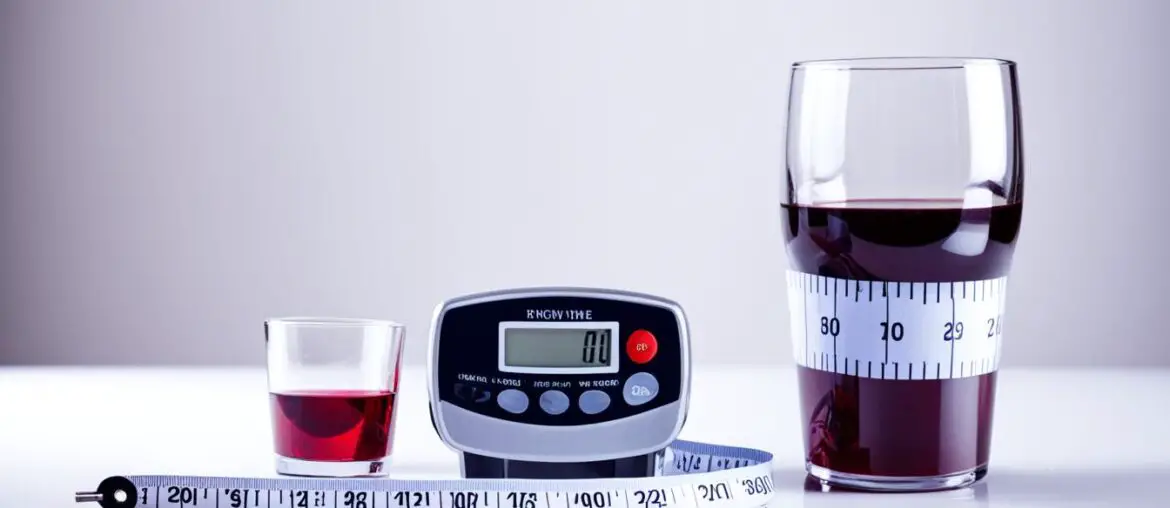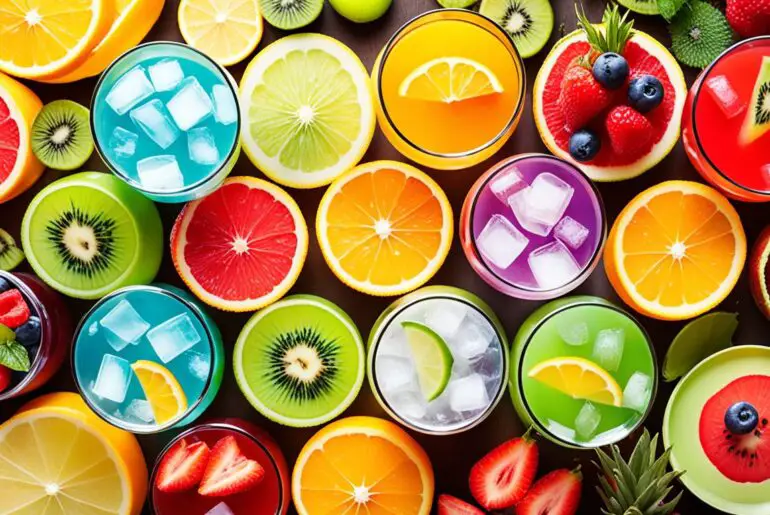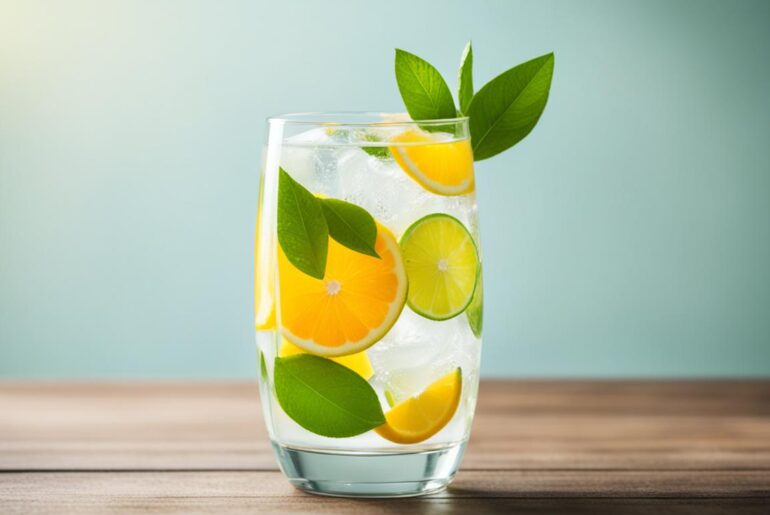Have you ever wondered how wine consumption affects your weight loss journey on the HCG diet? Does indulging in a glass of wine sabotage your progress or can it be enjoyed without hindering your results? Let’s explore the impact of wine on HCG diet results and uncover the truth behind this common query.
Key Takeaways:
- Alcohol consumption, including wine, is not recommended during the low-calorie phase of the HCG diet due to its high calorie content and effects on metabolism.
- Alcohol can hinder weight loss, interfere with the HCG hormone’s effects on metabolism, and increase hunger levels. It should be avoided during the low-calorie phase.
- Dr. Simeons, the creator of the HCG diet, advises against alcohol consumption during the low-calorie phase but allows for moderate wine consumption during the maintenance phase.
- Alcohol is considered a toxin to the liver and can impede weight loss by prioritizing detoxification over fat burning.
- Excessive and frequent alcohol consumption can be addictive and negatively impact overall health and weight loss goals.
Dr. Simeons’ Advice on Alcohol Consumption
During the HCG diet, it is important to follow the guidelines set by Dr. Simeons, the creator of this renowned weight loss program. Dr. Simeons advises against alcohol consumption during the low-calorie phase, which typically lasts between 21 and 40 days. This phase is designed to be highly restrictive, aiming to maximize weight loss and reset the body’s metabolism.
The HCG hormone plays a significant role in the diet’s effectiveness by enhancing metabolism and facilitating fat burning. Alcohol, on the other hand, can interfere with these metabolic processes and hinder weight loss. It is high in calories and can disrupt hormone levels, ultimately impeding progress during the low-calorie phase.
However, once the maintenance phase is reached, Dr. Simeons suggests that individuals can enjoy a glass of wine in moderation. The maintenance phase allows for a more flexible diet while still ensuring the maintenance of the weight loss achieved during the low-calorie phase.
Dr. Simeons’ advice highlights the importance of following the HCG diet protocol to achieve optimal results. By abstaining from alcohol during the low-calorie phase and gradually reintroducing it during the maintenance phase, individuals can strike a balance between weight loss and enjoying occasional indulgences. It is essential to remember that moderation is key, and any alcohol consumption should be mindful and controlled.
Alcohol as a Toxin to the Liver
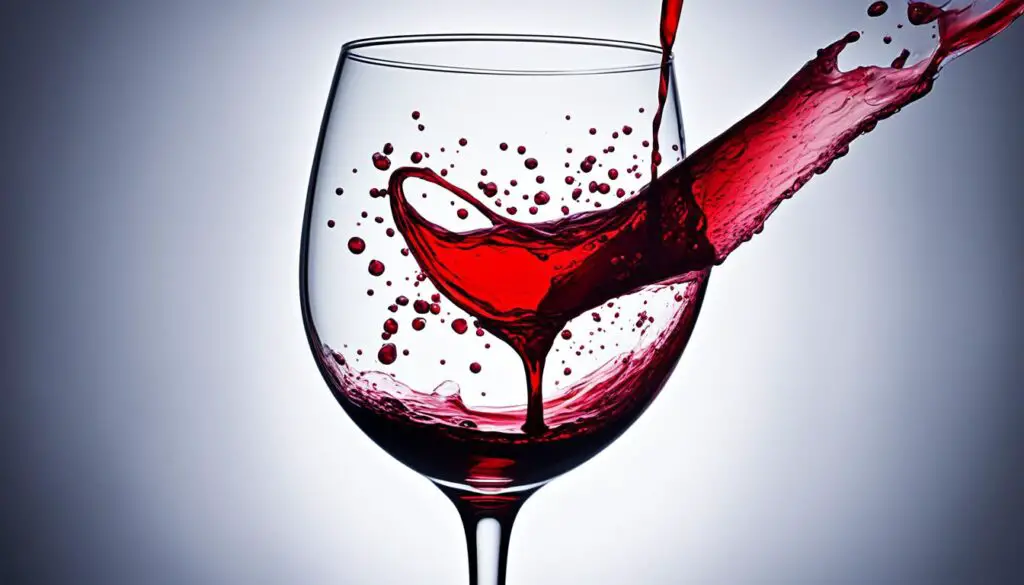
When it comes to the effects of alcohol on the body, the liver plays a significant role. The liver is responsible for detoxifying various substances, including alcohol. However, alcohol is considered a toxin to the liver.
When alcohol is consumed, the liver prioritizes the detoxification process over other functions, such as burning fat. This can have an impact on weight loss goals. The liver plays a crucial role in metabolizing fats, so if it is busy processing alcohol, it cannot effectively burn fat. As a result, fat accumulation may occur, hindering weight loss progress.
Maintaining a healthy liver is essential for optimal weight loss results. Minimizing alcohol consumption can help support liver function and promote effective fat metabolism. By reducing alcohol intake, individuals on the HCG diet can focus on burning fat and achieving their weight loss goals more efficiently.
It’s important to note that the liver’s ability to process alcohol varies from person to person, as factors such as genetics, overall liver health, and frequency of alcohol consumption can influence its function. Therefore, it is advisable to consult with a healthcare professional before making any significant changes to alcohol consumption habits.
Alcohol as an Addictive Drug
Alcohol, a widely consumed beverage, is not just a social lubricant; it is also considered a drug and can be addictive. While moderate alcohol consumption has been linked to potential health benefits such as reducing the risk of heart disease, excessive and frequent drinking can have detrimental effects on overall health and weight loss goals.
When consumed in large quantities, alcohol places stress on the liver, the organ responsible for detoxification. Processing alcohol becomes its priority, diverting its attention away from burning fat and impeding weight loss progress. Additionally, alcohol triggers a strong insulin response, disrupting the body’s hormone balance and potentially leading to increased fat storage.
Furthermore, alcohol can dehydrate cells, affecting bodily functions and metabolism. The pleasant “buzz” provided by alcohol can contribute to liver stress, insulin imbalance, and further dehydration. These factors combined can hinder weight loss efforts and impact overall well-being.
“Excessive alcohol consumption has been linked to weight gain, increased body fat percentage, and various health issues, including liver damage, heart disease, and cognitive impairment.” – National Institute on Alcohol Abuse and Alcoholism
While occasional and moderate alcohol consumption may be permissible for individuals on the HCG diet or any weight loss journey, it is essential to be mindful of quantity and frequency. Prioritizing overall health and well-being while making informed choices about alcohol consumption can help individuals achieve their weight loss goals more effectively.
It is worth noting that alcohol consumption should be avoided during the low-calorie phase of the HCG diet to maximize weight loss results. However, during the maintenance phase, when a more flexible diet is permitted, moderate alcohol consumption can be integrated, keeping in mind the potential impact on weight management and overall health.
Overall, understanding the addictive nature of alcohol and its potential consequences on weight loss can empower individuals to make informed decisions and strike a balance between enjoying occasional indulgences and achieving their desired results.
Selecting the Right Alcoholic Beverages
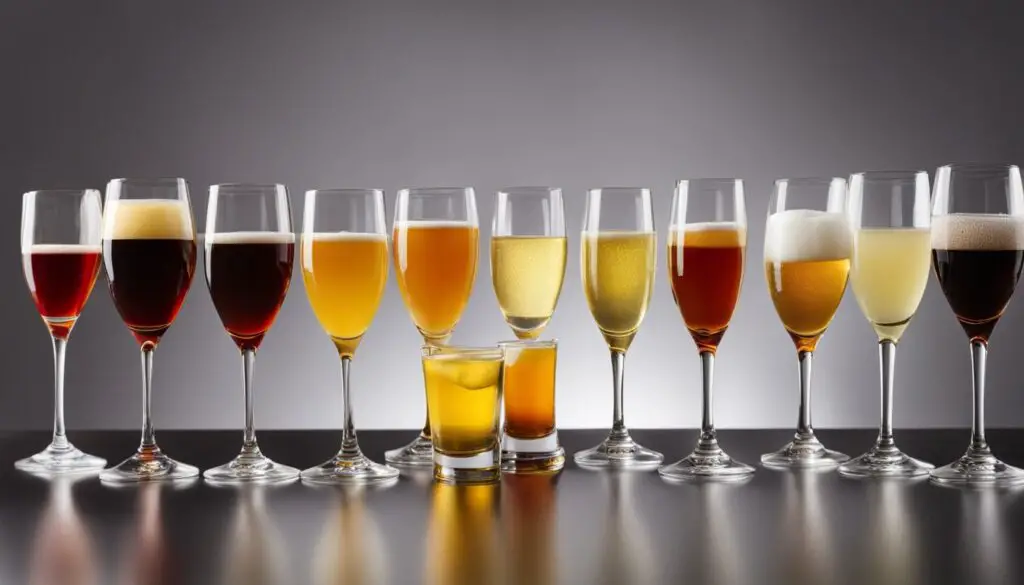
When following the HCG diet, it’s crucial to choose the right alcoholic beverages to ensure they align with your weight loss goals. While some alcoholic drinks are not suitable for the HCG diet, there are options that can be enjoyed in moderation. It’s important to understand which beverages to avoid and which ones can be included in your diet.
Avoid These Alcoholic Beverages
During the HCG diet, it is advised to avoid grain-based drinks, especially those containing gluten. Some examples of beverages to steer clear of include bourbon, gin, grain-based vodka, and whiskey. These drinks can potentially interfere with your weight loss progress on the HCG diet and should be avoided.
Moderation is Key
While certain alcoholic beverages are off-limits during the low-calorie phase of the HCG diet, there are options that can be enjoyed in moderation, especially during the maintenance phase. For special occasions or when you choose to indulge, consider drinks like potato vodka, tequila, and red wine.
Choosing the Right Wine
When it comes to wine selection, it’s essential to opt for the driest (least sweet) varieties. Some examples of dry wines that are more compatible with the HCG diet include Pinot Noir, Cabernet Sauvignon, and Chardonnay. These wines offer a more balanced option while minimizing added calories and sugar intake.
| Alcoholic Beverages | Suitability for the HCG Diet |
|---|---|
| Bourbon, Gin, Grain-based Vodka, Whiskey | Not Suitable |
| Potato Vodka, Tequila, Red Wine | Moderation Allowed |
Remember that during the low-calorie phase of the HCG diet, it is recommended to avoid wine and beer consumption altogether. However, during the maintenance phase, moderation is key in enjoying alcoholic beverages while maintaining your weight loss progress.
The Importance of Weighing Yourself Daily
Weighing yourself daily is an essential practice when following the HCG diet, particularly during the maintenance phase. By tracking your weight consistently, you can ensure that it stays within a 1-kilogram range of the weight you achieved on the last day of HCG hormone administration.
This daily weighing allows you to monitor any fluctuations in your weight and make necessary adjustments to your dietary choices to maintain weight stability. It provides valuable insights into how your body responds to various foods and helps you identify any triggers that may lead to weight gain or hinder your progress.
Monitoring your weight also helps you stay accountable and motivated on your weight loss journey. Seeing your progress, even in small increments, can be incredibly encouraging and reinforce your commitment to the HCG diet.
When weighing yourself, it’s essential to adopt a consistent routine to achieve accurate and reliable results. Try to weigh yourself at the same time each day, preferably in the morning before consuming any food or drinks. Ensure that you’re using a reliable scale to get accurate measurements.
It’s important to understand that weight fluctuations are normal and can be influenced by various factors such as water retention, digestion, and hormonal changes. By weighing yourself regularly, you can better understand these fluctuations and make informed decisions about your dietary choices.
However, it’s crucial not to become too obsessed with the numbers on the scale. Remember that weight loss is not always linear, and there may be periods where your weight plateaus or fluctuates slightly. Focus on the bigger picture and how you feel overall rather than solely relying on the numbers.
By staying diligent and consistent with daily weigh-ins, you can successfully navigate the maintenance phase of the HCG diet and sustain your weight loss results for the long term.
The Role of Tracking Weight in Your HCG Diet Journey
In addition to monitoring your weight daily, it can also be helpful to keep a record of your weight throughout your HCG diet journey. By maintaining a weight tracking log or using a tracking app, you can visually track your progress and identify any patterns or trends.
Tracking your weight can also provide valuable data to share with your healthcare provider or HCG diet coach. They can analyze your progress and provide guidance or adjustments if necessary.
The Significance of Carbohydrates in Weight Fluctuations
One factor that can significantly impact weight fluctuations is carbohydrate intake. Carbohydrates have the potential to cause water retention and temporary weight gain due to their effect on glycogen storage.
When you consume carbohydrates, your body converts them into glycogen, which is stored in your muscles and liver. Each gram of glycogen stored holds onto approximately 3 grams of water. Therefore, consuming more carbohydrates than usual can cause an increase in water weight.
By monitoring your carbohydrate intake and being mindful of your overall macronutrient balance, you can minimize the impact of these fluctuations. It’s important to follow the recommended carbohydrate guidelines of the HCG diet and focus on consuming complex carbohydrates from sources like vegetables, fruits, and whole grains.
Understanding the HCG Diet Phases
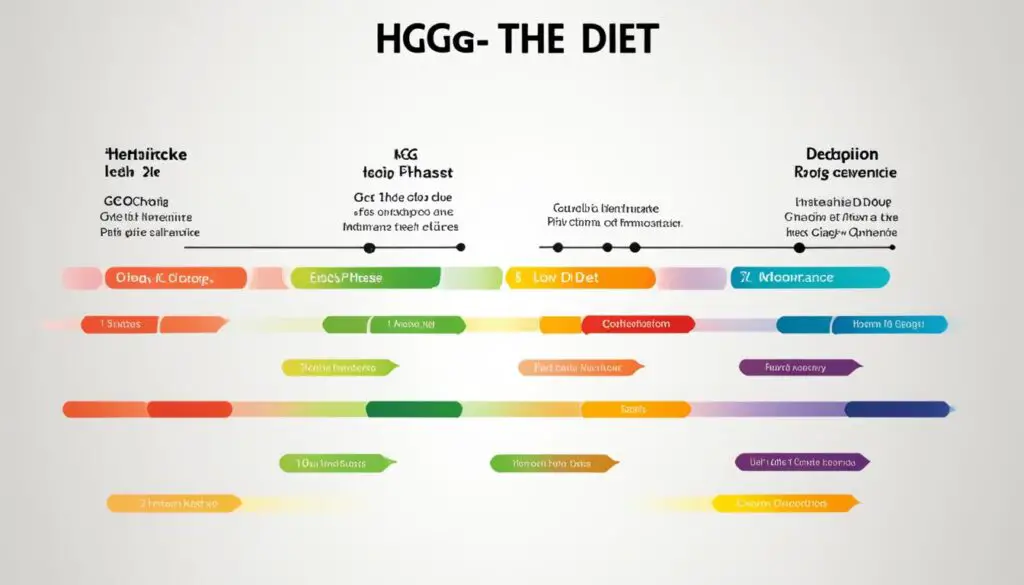
The HCG diet is divided into two main phases: the low-calorie phase and the maintenance phase. Each phase has its specific purpose in achieving weight loss and stabilizing weight.
Low-Calorie Phase
The low-calorie phase is the initial phase of the HCG diet and typically lasts between 21 and 40 days. During this phase, individuals consume only 500 calories per day and take the HCG hormone. The purpose of this phase is to facilitate rapid weight loss.
The low-calorie phase is highly restrictive, and it is important to follow the prescribed calorie intake to achieve optimal results. This phase helps the body transition into a state of ketosis, where it starts burning stored fat for energy.
Throughout the low-calorie phase, individuals must choose their foods carefully, focusing on lean proteins, vegetables, and limited fruit portions. It is essential to avoid high-calorie and high-carbohydrate foods to maximize weight loss.
Maintenance Phase
Once the low-calorie phase is completed, individuals enter the maintenance phase. This phase typically lasts for three weeks and allows for a gradual reintroduction of a wider range of foods while closely monitoring weight.
The maintenance phase aims to stabilize weight and establish sustainable eating habits for the long term. During this phase, individuals increase their calorie intake but still need to make mindful choices to avoid weight regain.
Throughout the maintenance phase, individuals should focus on consuming whole, nutrient-rich foods and continue to limit processed sugars and carbohydrates. Regular weighing and tracking of food intake are essential in maintaining weight stability.
Understanding Weight Stabilization
Weight stabilization is a vital aspect of the HCG diet. The combination of the low-calorie phase and the maintenance phase allows the body to reset its metabolism and establish a new weight set-point.
During the low-calorie phase, rapid weight loss occurs as the body relies on stored fat for energy. This phase kickstarts the metabolism and prepares it for sustained weight loss in the maintenance phase.
Weight stabilization is achieved by closely monitoring food choices, staying within the recommended calorie range, and ensuring a balanced intake of macronutrients. Regular weigh-ins and adjustments in dietary choices help maintain weight within a targeted range.
By understanding the different phases of the HCG diet and following the guidelines, individuals can successfully achieve their weight loss goals and establish sustainable habits for long-term health and wellness.
Plateau Breakers on the HCG Diet
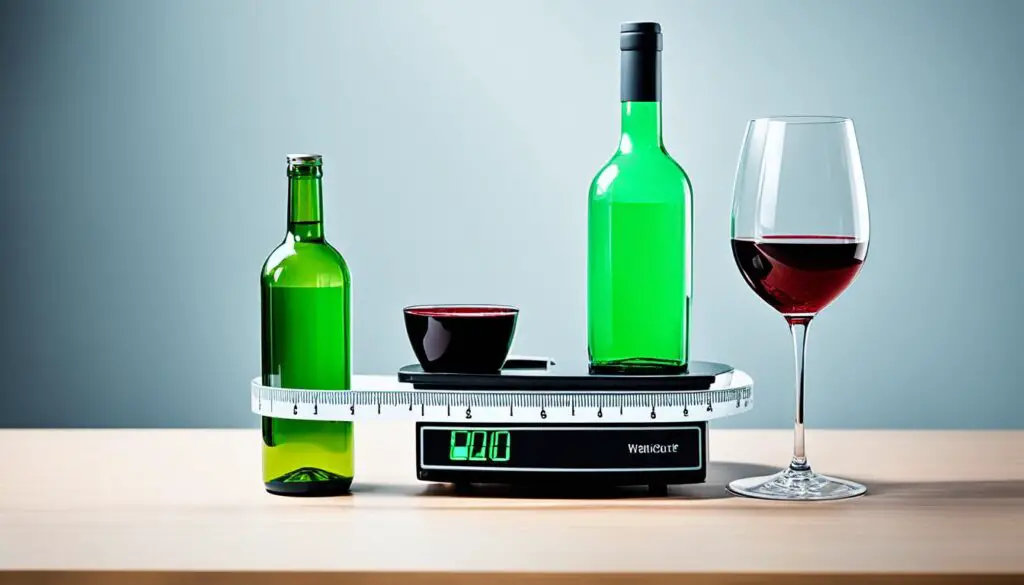
Plateaus can occur during the HCG diet, where weight loss stalls or slows down significantly. If you experience a weight loss plateau, there are several potential strategies to overcome it:
1. Evaluate Your Caloric Intake
Take a closer look at your calorie consumption during the low-calorie phase of the HCG diet. Ensure that you are accurately measuring and tracking your food intake, including any oils or hidden sources of calories. Adjusting your caloric intake by reducing portion sizes or modifying your meal plan could jumpstart your weight loss again.
2. Increase Your Physical Activity
Engaging in regular physical activity can help break through a weight loss plateau. Incorporate exercises such as walking, jogging, or cycling into your routine. Physical activity not only burns calories but also boosts metabolism, helping you overcome the plateau and continue making progress towards your weight loss goals.
3. Stay Hydrated
Drinking an adequate amount of water is crucial for weight loss and overall health. Proper hydration can support your body’s metabolism and digestion, helping to break through a weight loss plateau. Aim to drink at least eight glasses of water per day and limit other beverages, especially those high in sugar or calories.
4. Reassess Your Portions
Take a closer look at the portion sizes of your meals. Sometimes, unintentional overeating or miscalculating portion sizes can lead to a weight loss plateau. Use measuring cups and kitchen scales to ensure you are eating the recommended portions according to the HCG diet guidelines.
5. Modify Your Food Choices
Consider making adjustments to your food choices to overcome a weight loss plateau. Opt for foods that are lower in calories and carbohydrates while being nutrient-dense. Increase your intake of lean proteins, fruits, and vegetables, and limit processed foods, sugary snacks, and high-fat foods.
Incorporating these strategies into your HCG diet journey can help you overcome weight loss plateaus and continue making progress towards your goals. Remember to consult with a healthcare professional or HCG diet specialist for personalized advice and guidance.
The Importance of Avoiding Oil on the HCG Diet

The HCG diet entails strict restrictions on oil consumption. It is vital to steer clear of oil in various aspects of daily life to adhere to the diet’s guidelines. This includes avoiding oil in products such as shampoos, lotions, toothpaste, makeup, deodorant, and other bathroom items. Oil-based cosmetics should be replaced with mineral-based alternatives to ensure they do not interfere with your progress on the HCG diet.
Additionally, caution should be exercised when engaging in activities like massages, sunbathing, and intense exercise. These activities can involve the use of oils or lead to water retention, which may hinder your weight loss efforts. Opting for oil-free alternatives and carefully reading product labels is essential to ensure that you select items that align with the oil restrictions of the HCG diet.
Benefits of Oil-Free Products
Choosing oil-free products can have several advantages when following the HCG diet:
- Prevents the intake of additional calories: Oils are calorie-dense, and consuming them can sabotage your daily caloric intake. By opting for oil-free products, you can stay within your recommended calorie limit and maximize your weight loss.
- Avoids interference with metabolism: Oil can slow down the body’s ability to burn fat and utilize nutrients, which can hamper your weight loss progress. Using oil-free products ensures that your body can efficiently metabolize the nutrients it receives.
- Maintains hormonal balance: Some oils can disrupt hormonal balance in the body, which can impact weight loss and overall health. By choosing oil-free products, you help maintain a more stable hormonal environment, supporting the effectiveness of the HCG hormone in aiding weight loss.
It is important to note that even seemingly small amounts of oil in products can have a significant impact on your progress on the HCG diet. Paying attention to ingredient labels and opting for oil-free alternatives is crucial for the success of your weight loss journey.
Remember, the HCG diet is a carefully designed protocol that aims to optimize weight loss. By avoiding oil in various aspects of your daily life, you can enhance the effectiveness of the diet and achieve your desired results.
| Oil-Free Products | Oil-based Products |
|---|---|
| Mineral-based cosmetics | Oil-based cosmetics |
| Oil-free shampoos and conditioners | Oil-infused hair products |
| Oil-free lotions and moisturizers | Oil-based lotions and moisturizers |
| Oil-free toothpaste | Toothpaste with oil derivatives |
Conclusion
After careful consideration, it is clear that alcohol consumption can have a significant impact on HCG diet results. Particularly during the low-calorie phase, alcohol’s high calorie content and effects on metabolism can hinder weight loss progress. It is advisable to avoid alcohol during this phase, as advised by Dr. Simeons, the creator of the HCG diet. However, once the maintenance phase is reached, moderate wine consumption may be allowed.
To maintain weight loss and achieve long-term success on the HCG diet, it is crucial to adhere to the diet’s guidelines and make wise choices about alcohol and food intake. Weighing yourself daily and closely monitoring your weight can help ensure you stay within the desired range. By being mindful of your choices and following the HCG diet protocol, you can achieve your weight loss goals while still enjoying occasional indulgences like a glass of wine.
In conclusion, the HCG diet offers a structured approach to weight loss, and alcohol should be consumed with caution. Opting for abstinence during the low-calorie phase and moderation during the maintenance phase is key. By prioritizing the guidelines of the HCG diet and maintaining a balanced and healthy lifestyle, you can successfully maintain weight loss and achieve the desired long-term results.
FAQ
What is the impact of wine on HCG diet results?
Wine consumption can hinder weight loss on the HCG diet due to its high calorie content and effects on metabolism. It is not recommended during the low-calorie phase but can be consumed in moderation during the maintenance phase.
What is Dr. Simeons’ advice on alcohol consumption during the HCG diet?
Dr. Simeons advises against alcohol consumption during the low-calorie phase of the HCG diet. However, once the maintenance phase is reached, moderate wine consumption may be allowed.
Is alcohol considered a toxin to the liver and how does it affect weight loss?
Yes, alcohol is considered a toxin to the liver. Consuming alcohol can impede weight loss by prioritizing detoxification over fat burning. This can result in the accumulation of fat in the liver and other areas of the body.
Is alcohol an addictive drug and how does it impact weight loss?
Alcohol is considered a drug and can be addictive. Frequent and excessive alcohol consumption can negatively impact overall health and weight loss goals by placing stress on the liver, triggering insulin imbalance, and dehydrating cells.
What alcoholic beverages are suitable for individuals on the HCG diet?
Grain-based drinks and those containing gluten should be avoided on the HCG diet. However, some options like potato vodka, tequila, and certain varieties of red wine can be included in moderation.
Why is weighing yourself daily important on the HCG diet?
Weighing yourself daily allows for the monitoring of weight fluctuations and helps track progress during the maintenance phase. It allows adjustments in dietary choices to maintain weight stability.
What are the phases of the HCG diet?
The HCG diet consists of the low-calorie phase, where individuals consume only 500 calories per day, and the maintenance phase, which allows for a gradual reintroduction of foods while monitoring weight closely.
How can weight loss plateaus be overcome on the HCG diet?
Strategies to overcome weight loss plateaus on the HCG diet include adjusting calorie intake, incorporating intermittent fasting, increasing exercise, and ensuring optimal hydration.
Why is it important to avoid oil on the HCG diet?
Oil consumption is restricted on the HCG diet due to its impact on metabolism. It is important to avoid oil-based products and choose oil-free alternatives to maintain the diet’s guidelines.
What is the conclusion regarding alcohol and the HCG diet?
Alcohol consumption, especially during the low-calorie phase, can hinder weight loss on the HCG diet. It is advisable to follow Dr. Simeons’ advice and avoid alcohol during this phase. Once the maintenance phase is reached, moderate wine consumption may be considered while maintaining weight loss results.

